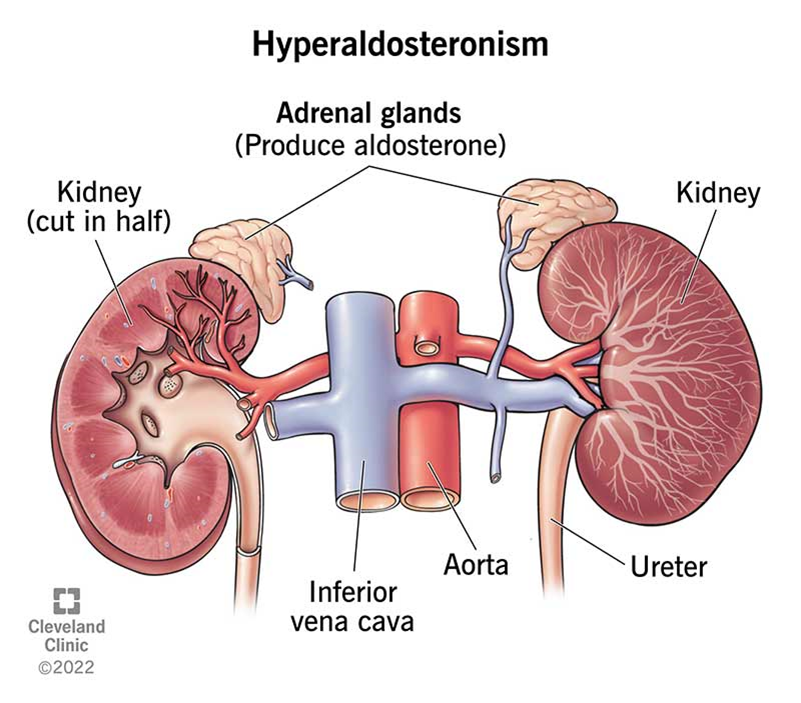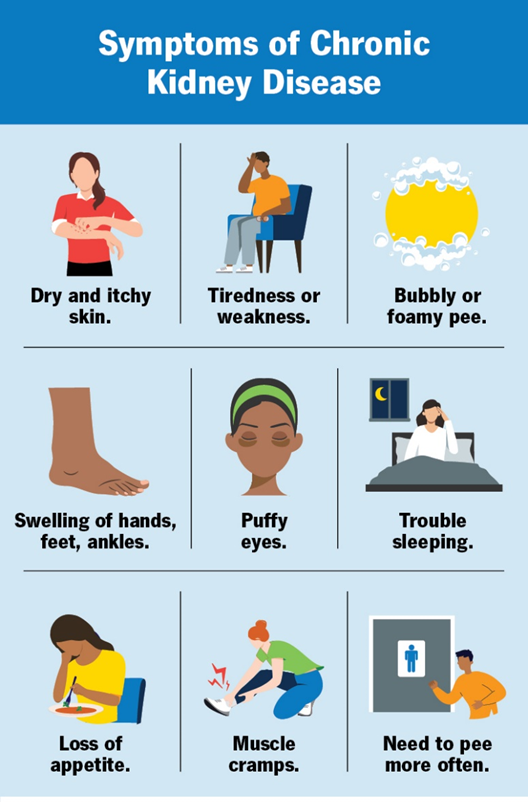A client with heart failure (HF) develops hyperaldosteronism and spironolactone is prescribed. Which instruction should the nurse include in the client’s plan of care?
Monitor skin for excessive bruising.
Replace salt with a salt substitute.
Cover your skin before going outside.
Limit the intake of foods high in potassium.
The Correct Answer is D
Choice A Reason:
Spironolactone is a potassium-sparing diuretic often prescribed for heart failure. While monitoring for side effects is important, excessive bruising is not a common side effect of spironolactone. Bruising might be more relevant for patients on anticoagulants or those with clotting disorders.
Choice B Reason:
Replacing salt with a salt substitute is not advisable for patients on spironolactone. Many salt substitutes contain potassium chloride, which can lead to hyperkalemia (high potassium levels) when combined with spironolactone. Hyperkalemia can cause serious cardiac issues, including arrhythmias.
Choice C Reason:
Covering the skin before going outside is not specifically related to the use of spironolactone. This advice might be more relevant for medications that cause photosensitivity, such as certain antibiotics or diuretics like hydrochlorothiazide, but not spironolactone.
Choice D Reason:
Limiting the intake of foods high in potassium is crucial for patients taking spironolactone. Spironolactone can increase potassium levels in the blood, and consuming high-potassium foods (like bananas, oranges, and potatoes) can exacerbate this effect, leading to hyperkalemia. Hyperkalemia can be dangerous and cause symptoms such as muscle weakness, fatigue, and cardiac arrhythmias.

Nursing Test Bank
Naxlex Comprehensive Predictor Exams
Related Questions
Correct Answer is B
Explanation
Choice A Reason:
Notifying the healthcare provider of the contraindication to tetracyclines is not necessary in this context. Doxycycline, a type of tetracycline, is commonly prescribed and does not have a direct contraindication with birth control pills. However, the nurse should be aware of potential interactions and advise the client accordingly.
Choice B Reason:
Advising the client that the birth control pills will be less effective while taking doxycycline hyclate is crucial. Antibiotics like doxycycline can reduce the effectiveness of hormonal contraceptives, increasing the risk of unintended pregnancy. The client should be informed about this interaction and advised to use an additional non-hormonal method of contraception, such as condoms, while taking the antibiotic and for a short period after completing the course.
Choice C Reason:
Instructing the client to take the two medications at least two hours apart is not relevant in this case. The interaction between doxycycline and birth control pills is not related to the timing of administration but rather to the potential reduction in the effectiveness of the contraceptive.
Choice D Reason:
Encouraging the client to stop taking birth control pills until she has finished taking all the doxycycline hyclate is not advisable. Stopping birth control pills can lead to a disruption in the contraceptive regimen and increase the risk of unintended pregnancy. Instead, the client should be advised to use an additional method of contraception.
Correct Answer is C
Explanation
Choice A reason:
Calcium acetate is not used to lower potassium levels. Potassium levels in the blood are typically managed through dietary restrictions, medications like potassium binders, and dialysis in patients with CKD. The normal range for blood potassium levels is 3.5 to 5.2 mEq/L for adults.
Choice B reason:
Calcium acetate can increase calcium levels in the blood, not decrease them. It is important to monitor calcium levels to avoid hypercalcemia, which can lead to complications such as vascular calcification and cardiac issues. The normal range for blood calcium levels is 8.6 to 10.2 mg/dL.
Choice C reason:
Calcium acetate is used to lower phosphate levels in patients with CKD. It works by binding to dietary phosphate in the intestines, forming insoluble calcium phosphate that is excreted in the stool. This helps prevent hyperphosphatemia, a common issue in CKD patients. The normal range for blood phosphate levels is 2.5 to 4.5 mg/dL.

Choice D reason:
Calcium acetate does not directly affect blood pH levels. Blood pH is regulated by the kidneys and lungs, and the normal range is 7.35 to 7.45. While CKD can affect acid-base balance, calcium acetate’s primary role is to manage phosphate levels.
Whether you are a student looking to ace your exams or a practicing nurse seeking to enhance your expertise , our nursing education contents will empower you with the confidence and competence to make a difference in the lives of patients and become a respected leader in the healthcare field.
Visit Naxlex, invest in your future and unlock endless possibilities with our unparalleled nursing education contents today
Report Wrong Answer on the Current Question
Do you disagree with the answer? If yes, what is your expected answer? Explain.
Kindly be descriptive with the issue you are facing.
